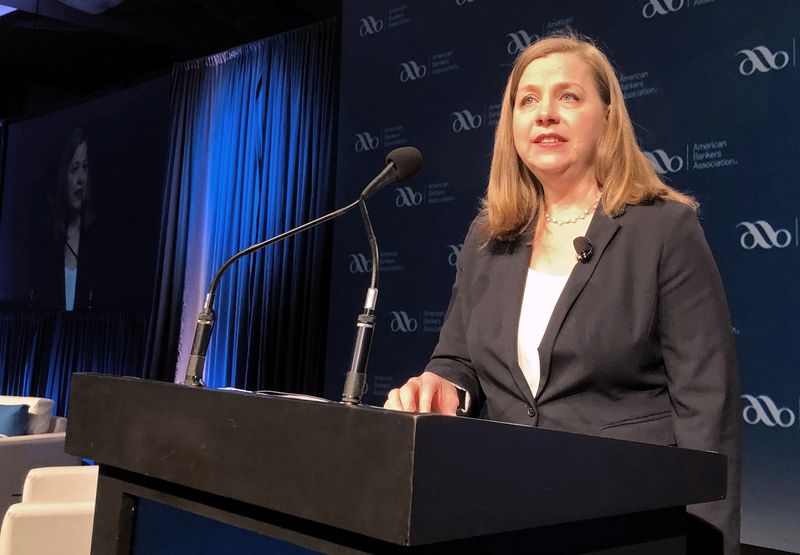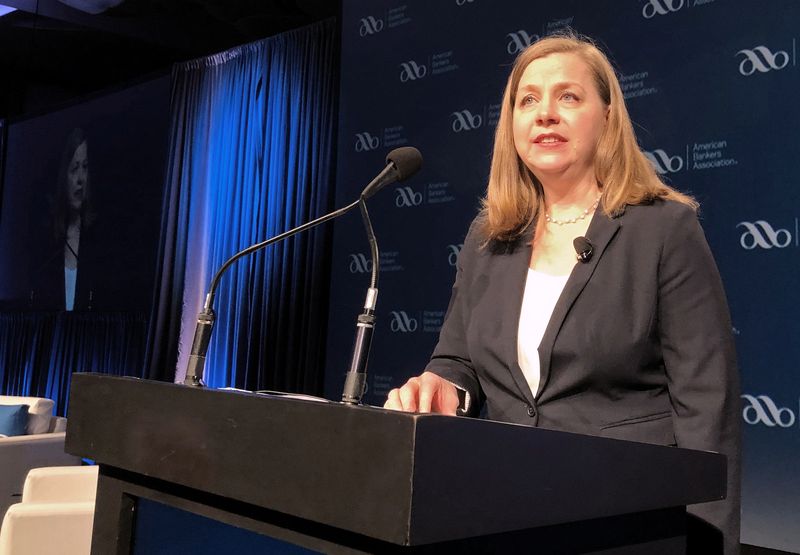
(Reuters) – Federal Reserve Governor Michelle Bowman on Thursday said she supported last month’s interest-rate cut as the “final step” in the U.S. central bank’s monetary policy recalibration, with rising inflation risks dictating a cautious approach ahead.
“We should also refrain from prejudging the incoming administration’s future policies,” Bowman said in remarks prepared for delivery to the California Bankers Association in Laguna Beach, California. “Instead, we should wait for more clarity and then seek to understand the effects on economic activity, the labor market, and inflation.”
The remarks were Bowman’s first since she emerged as a front runner to become the Fed’s next top banking regulator, after Michael Barr announced this week he would step down from his job as Fed vice chair of supervision by the end of next month. She was nominated to her current post by Donald Trump during his first stint in the White House.
Bowman has loudly criticized Barr over the last couple of years, and would be expected to take a much lighter touch should she be picked for the job.
“This year will see a transition in leadership at the banking agencies, and I expect that this will translate into a shift in priorities and approach,” she said, repeating what have been her consistent calls for more tailoring of regulations and a more “pragmatic” approach to policymaking.
“Bank regulation and supervision need not be an adversarial system, with banks and regulators acting in opposition. Rather, banks and regulators often have the shared goal of a banking system that is safe, sound, and effective, with each serving an important role in furthering these objectives.”
On monetary policy Bowman was hawkish, flagging her concern that progress on inflation may have stalled, and noting upside risks, including from the release of “pent-up demand” following the November presidential election.
Higher stock prices, she said, may be contributing to the lack of further progress on inflation, with the recent rise in the yield on the 10-year Treasury note reflecting in part concerns about inflation risks.
“I continue to prefer a cautious and gradual approach to adjusting policy,” she said.
Bowman in September cast the first dissent on monetary policy by a Fed governor since 2005, saying she didn’t agree the Fed should reduce short-term borrowing costs by such a large amount. She said Thursday she could have supported not taking any action in December.

